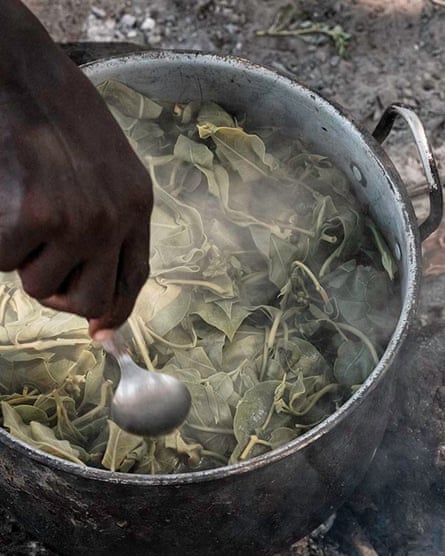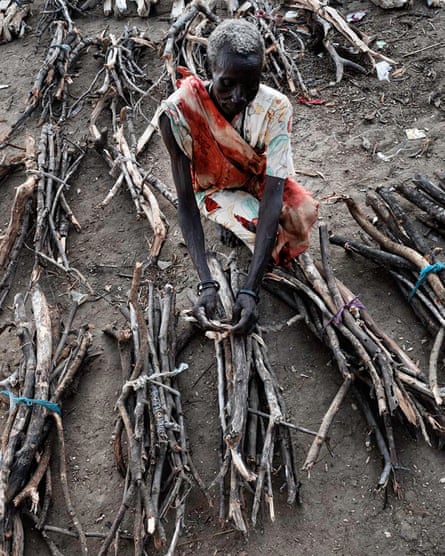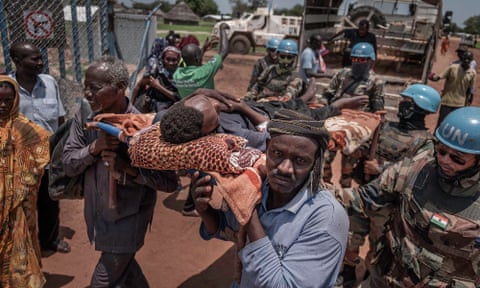A UN armoured mine-resistant vehicle stands sentinel on the muddy road leading to Kadhian village south of the Kiir River. It’s a stark reminder of the perpetual danger lurking in this disputed oil-rich region spanning the border of Sudan and South Sudan.
A procession of young men, AK-47s slung over their shoulders, walk into the village between the UN vehicle and a “this is a demilitarised zone” warning sign. There are just a few people around. Among them, sitting near a tea shop, is payam chief Khom Dhalic, a representative of seven villages in the area, who describes life in “the box”, as the region is known locally.

-
The remnants of an MSF health post destroyed in fighting, in Wunpeth village, Abyei
“The UN station their tanks here but when the attacks commence, they retreat. Lives have been lost, including women and children, and we endure sleepless nights drenched in fear. Many families have sought refuge far from here. This land, our ancestral home, lies fallow, it is too dangerous to farm. We survive on the leaves of the trees,” says Dhalic.

-
Families live in makeshift shelters at a camp for those displaced by fighting

-
Hama Abaker and her daughter, Ashura Adem
The Abyei region, rich in oilfields and lush pastures, has long been disputed. Its contentious status, exacerbated since South Sudan’s independence in 2011, has brought conflict and insecurity. The once-promised referendum in Abyei to decide if it would remain a part of Sudan, or restored to South Sudan, first included in the peace agreement that ended Sudan’s civil war in 2005, remains a distant dream, delayed by disputes over residency qualifications, leaving the region in perpetual limbo.
A UN-backed interim security force for Abyei (Unisfa) was deployed in 2011 and sought to maintain order until a referendum could be held, but political entanglements have stymied progress.
With attention focused on the outbreak of war in Sudan this year, Abyei continues to be overlooked. But as the Unisfa mandate nears renewal on 15 November at the UN security council, the hope persists that the international community will recognise Abyei’s plight and work toward a resolution.

-
Children learn English at a makeshift school at the Bok Chop IDP camp
A decade of political gridlock has ensnared Abyei in a precarious situation, where the interests of South Sudan’s president, Salva Kiir, and Sudan’s Abdel Fattah al-Burhan, align in maintaining the status quo. “For Kiir, any move risks alienating the Sudanese army, potentially sparking support for militia armies. Meanwhile, Burhan views Abyei as a means to control the Misseriya, Arab pastoralists who traverse the region annually,” says the writer and researcher Joshua Craze. “That’s important because the Misseriya are being recruited by the Rapid Support Forces – the main militia fighting against Burhan in the north.”



-
A family scrape together food for an evening meal (top); cooking leaves to eat; Mary sells firewood for about 200 South Sudanese pounds a bundle, and walks for more than an hour each way to do so
Amid this turmoil, thousands grapple with displacement, intensified by historical conflicts, the mounting climate crisis, economic hardships and limited access to essential healthcare.












